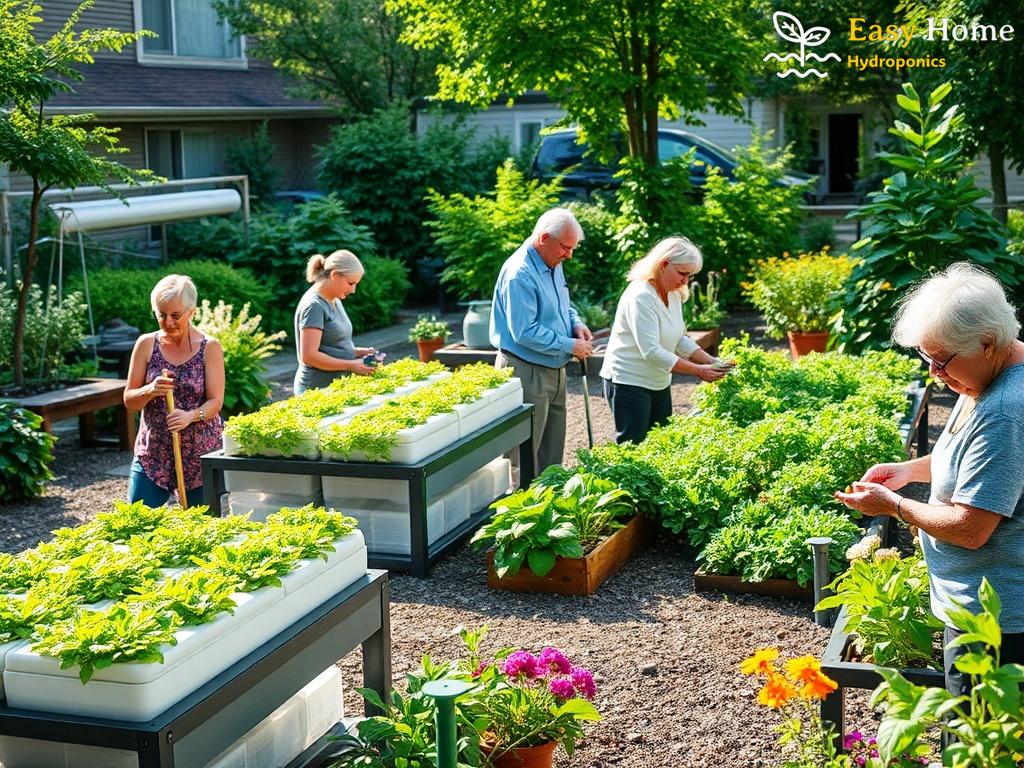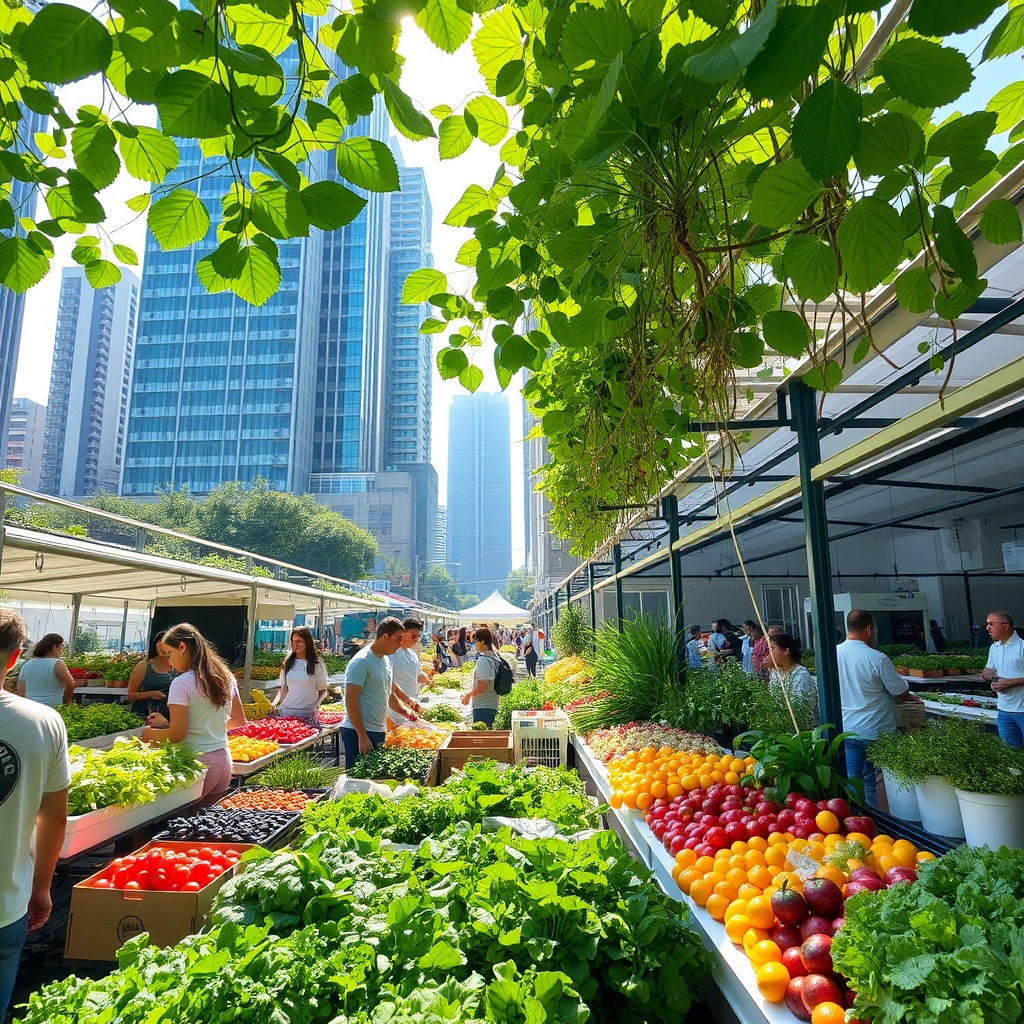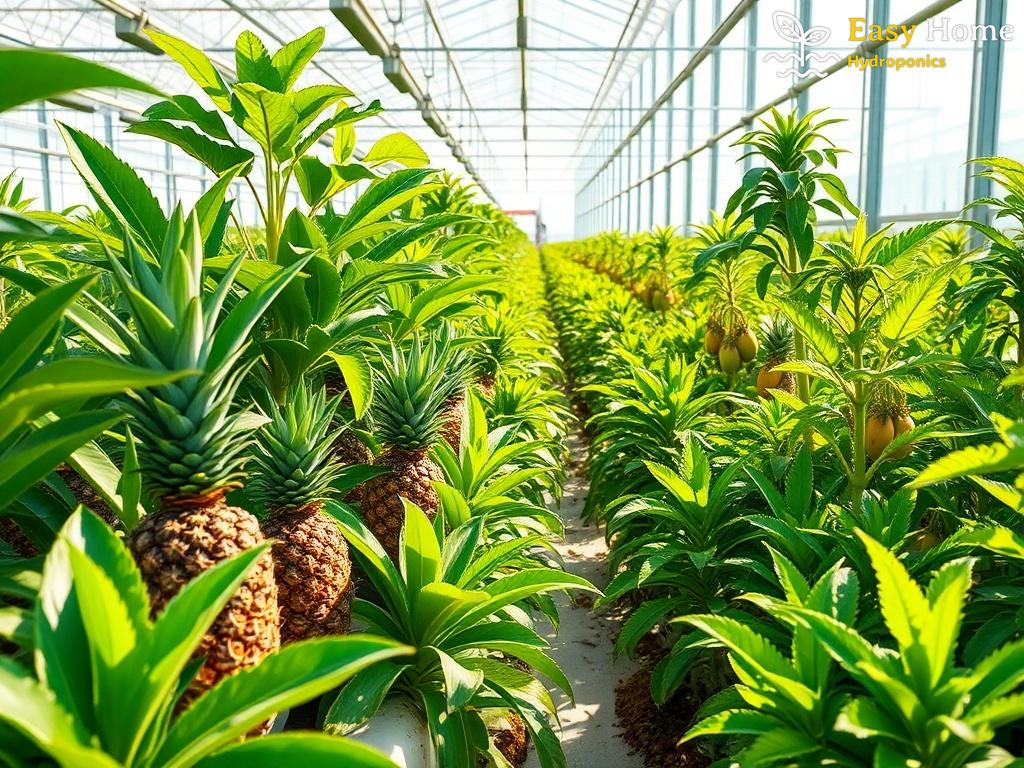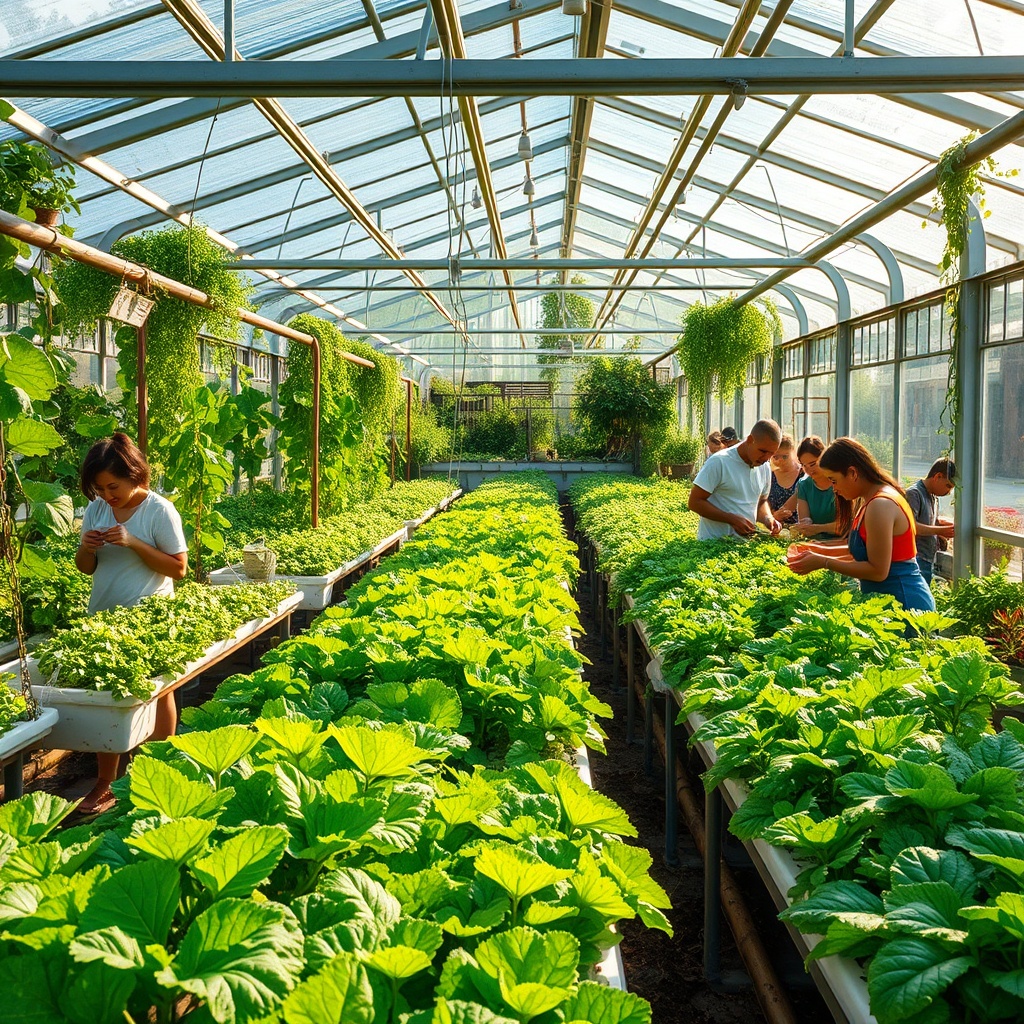Soil-less Wonders: The Science Behind Hydroponics
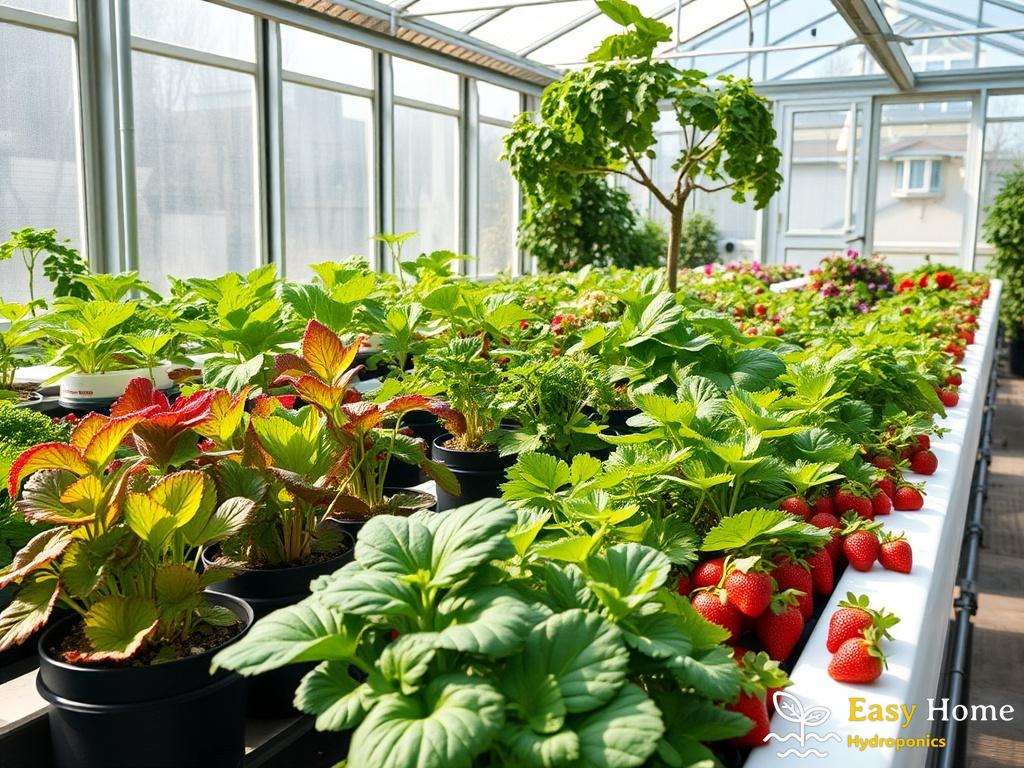
Imagine biting into a ripe, juicy tomato that has been grown without soil. This is the astonishing reality of hydroponics, a method of gardening that is redefining how we cultivate plants. Especially in retirement communities, hydroponic gardening is gaining traction not just for its efficiency but also for the joy it brings to residents. With the right knowledge and setup, anyone can grow fresh produce right in their backyard or even indoors!
Hydroponics operates on the principle that plants need three essential components: water, nutrients, and light. Instead of relying on soil, this innovative method provides all the nutrients directly to the plant’s roots through a nutrient-rich water solution. The result? Faster growth rates, higher yields, and the ability to grow in environments that traditional gardening cannot accommodate.
| Hydroponic Method | Description | Best For |
|---|---|---|
| Deep Water Culture (DWC) | Plants are suspended in a nutrient solution with their roots submerged. | Leafy greens and herbs |
| Nutrient Film Technique (NFT) | A continuous flow of nutrient solution runs over the roots, allowing them to absorb what they need. | Fast-growing plants like lettuce |
| Vertical Hydroponics | Plants are grown in vertical stacks, maximizing space. | Urban and small-space gardeners |
For retirees, hydroponic gardening offers a plethora of benefits that reach far beyond just fresh produce. Engaging in hydroponics can stimulate cognitive function, promote a sense of community, and even enhance physical health. The hands-on experience of nurturing plants can be incredibly therapeutic, allowing individuals to connect with nature in a unique way.
- Easy Accessibility: Hydroponic systems can be adapted for wheelchair users and those with limited mobility.
- Year-Round Gardening: No need to worry about seasonal changes; plants can thrive indoors regardless of the weather.
- Educational Opportunities: Residents can learn about plant biology, sustainability, and nutrition through direct involvement.
In conclusion, the rise of hydroponic gardening in retirement communities is more than just a trend; it’s a movement towards sustainable living and healthy aging. The science behind hydroponics is not only fascinating but also opens up a world of possibilities for those looking to cultivate a greener lifestyle.
Nurturing Nature: Benefits of Hydroponic Gardening for Seniors
As we age, our connection to nature often becomes more vital than ever. Hydroponic gardening offers a unique opportunity for seniors to engage with the environment, fostering not only a sense of purpose but also numerous health advantages. In retirement communities, this innovative method is transforming traditional gardening into a hands-on, accessible activity that allows seniors to cultivate their green thumbs effortlessly.
One of the most immediate benefits of hydroponic gardening for seniors is the increased physical engagement it promotes. Unlike conventional gardening, which can be physically demanding and challenging for those with limited mobility, hydroponics can be adapted to suit various needs. Raised systems and vertical gardens minimize bending and stretching, making it easier for seniors to participate actively. This gentle exercise helps improve flexibility and strength, contributing significantly to their overall health.
The act of nurturing plants can be incredibly rewarding, offering profound mental stimulation and emotional fulfillment. Hydroponic gardening encourages seniors to learn about plant biology, nutrient cycles, and sustainable practices, keeping their minds sharp and engaged. The joy of watching plants flourish from tiny seedlings to a bountiful harvest can enhance their mood, reduce feelings of isolation, and foster a deeper connection with their surroundings. Furthermore, the social aspect of gardening in community settings promotes relationships and camaraderie, creating bonds that enrich their lives.
Perhaps one of the most appealing aspects of hydroponic gardening is the promise of fresh produce right at their fingertips. Seniors can grow a variety of fruits and vegetables, ensuring that they have access to nutritious options that can enhance their diet. This self-sufficiency not only saves money but also encourages healthier eating habits. Picture the satisfaction of plucking ripe strawberries or crisp lettuce leaves, knowing that they were cultivated with care and love. The empowerment that comes from growing their food can be a transformative experience.
In summary, hydroponic gardening offers a multitude of benefits tailored specifically for seniors, from physical engagement and mental stimulation to the joy of growing fresh produce. As this innovative gardening method takes root in retirement communities, it is clear that nurturing nature can lead to a more fulfilling and enriched life in the golden years.
Community Connections: Building Bonds Through Shared Gardening
As hydroponic gardening flourishes within retirement communities, it is not only transforming the physical landscape but also nurturing the social fabric of these environments. Residents are coming together, united by a common interest in sustainable living and the joy of cultivating their own food. This shared experience fosters connections that go beyond mere horticulture, creating a vibrant community spirit.
Engaging in hydroponic gardening as a group cultivates camaraderie among residents. From planting seeds to harvesting crops, each step in the process offers opportunities for collaboration and teamwork. This collective effort encourages individuals to share knowledge, tips, and personal stories, enriching the experience for everyone involved. When seniors work side by side, they not only nurture their plants but also nurture friendships that can blossom into lasting relationships.
Beyond the act of gardening itself, hydroponics opens the door to a variety of social events that can bring residents together. Workshops on hydroponic techniques, cooking demonstrations featuring fresh produce, and community harvest days create a lively atmosphere where residents can interact, learn, and celebrate their achievements. These activities help break down barriers and foster a sense of belonging, making retirement communities feel more like family.
Shared gardening experiences offer a multitude of advantages that extend beyond the garden. Here are some key benefits:
- Enhanced Communication: Working together encourages conversations and strengthens bonds, reducing feelings of loneliness.
- Skill Development: Residents can learn from one another, sharing gardening skills and culinary techniques, which promotes personal growth.
- Building Trust: Collaborating on a common goal fosters trust and mutual respect among community members.
- Emotional Support: Gardening together provides a platform for emotional support, as residents celebrate successes and navigate challenges as a team.
In essence, the rise of hydroponic gardening in retirement communities is not merely about growing plants; it is about cultivating relationships and building a sense of community. As residents bond over their shared love for gardening, they foster an environment that promotes wellness, joy, and togetherness—a true testament to the power of nature in nurturing human connections.
From Seed to Salad: Easy Crops for Retirement Gardens
As the trend of hydroponic gardening continues to blossom in retirement communities, many residents are discovering the joy of cultivating their own food. The beauty of this method lies in its simplicity and accessibility, making it an ideal choice for seniors eager to harvest their own fresh produce. In this section, we will explore a variety of easy-to-grow crops that not only thrive in hydroponic systems but also offer a delightful addition to any meal.
Leafy Greens: The Nutrient Powerhouses are among the most popular choices for hydroponic gardening. Crops like lettuce, spinach, and kale grow remarkably well in nutrient-rich water, providing a quick return on effort. These greens are not only easy to cultivate but are also packed with essential vitamins and minerals. The thrill of harvesting a crisp, fresh salad right from your garden can be a game-changer, encouraging healthier eating habits and a deeper appreciation for plant-based nutrition.
Herbs such as basil, cilantro, and mint can elevate any dish, and their growth in hydroponic systems is straightforward and rewarding. For seniors, the process of tending to herbs can be a delightful sensory experience, as they engage with the vibrant colors and aromatic scents that fill the air. Additionally, these herbs require minimal space, making them perfect candidates for smaller hydroponic setups.
Fruiting Plants: A Sweet Reward is also achievable in hydroponic gardens. Strawberries, for instance, are a wonderful option for those looking to indulge in sweet, home-grown fruits. These plants flourish in hydroponics and provide a sense of accomplishment as residents witness their berries ripening. The joy of picking plump, juicy strawberries can transform a simple snack into a special treat, enhancing the overall gardening experience.
What’s more, hydroponic systems can be tailored to accommodate a variety of crops, allowing seniors to experiment with their gardening passions. Whether it’s growing vibrant peppers or juicy tomatoes, the possibilities are endless. The process of moving from seed to salad not only brings nourishment but also cultivates a sense of purpose and connection to the food they consume.
In summary, the rise of hydroponic gardening in retirement communities presents a unique opportunity for residents to engage with their environment while enjoying the fruits of their labor. By choosing easy-to-grow crops, they can transform their dining experiences and foster a deeper connection with nature, all while nurturing their community spirit.
Sustainable Living: Eco-Friendly Practices in Hydroponics
As the trend of hydroponic gardening takes root in retirement communities, it embodies a commitment to sustainable living that resonates deeply with eco-conscious individuals. This innovative approach not only redefines how residents grow their food but also champions practices that minimize environmental impact. With a focus on sustainability, hydroponics is paving the way for a greener future, allowing seniors to engage with nature while nurturing the planet.
One of the most striking advantages of hydroponic systems is their efficient use of water. Unlike traditional soil gardening, which can waste significant amounts of water through evaporation and drainage, hydroponics recirculates water in a closed-loop system. This method significantly reduces water consumption, making it an ideal choice for those looking to conserve this precious resource. Residents can enjoy the satisfaction of growing their food while minimizing their water footprint, contributing to broader environmental conservation efforts.
Hydroponic gardening in retirement communities often emphasizes organic practices, steering clear of synthetic fertilizers and pesticides. By utilizing nutrient solutions derived from natural sources, seniors can cultivate their crops in an eco-friendly manner that prioritizes health and sustainability. This conscious choice not only results in fresher, healthier produce but also aligns with a growing demand for organic food options. Residents can take pride in knowing that their gardening efforts support a chemical-free lifestyle, fostering a connection with nature that is both wholesome and environmentally responsible.
The collective nature of hydroponic gardening in retirement communities fosters a culture of shared responsibility towards sustainable practices. Residents often come together to discuss eco-friendly techniques, share insights on reducing waste, and explore ways to enhance their gardening methods. This spirit of collaboration not only strengthens community bonds but also amplifies the impact of their sustainable efforts. By working together, seniors can inspire one another to adopt greener habits, creating a ripple effect that extends beyond their gardens and into their daily lives.
In summary, the rise of hydroponic gardening in retirement communities is a testament to the power of sustainable living. By embracing eco-friendly practices such as water conservation and organic gardening, residents are not only nurturing their own well-being but also contributing to a healthier planet. As they cultivate their green thumbs, they are also cultivating a greener future for generations to come.

